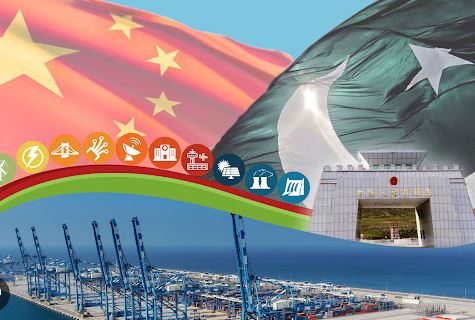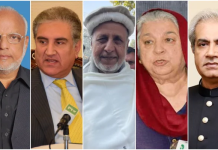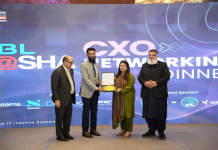DNA
ISLAMABAD, JUN 21: A Roundtable discussion on the tile of CPEC & Analysis was held in the Institute of Regional Studies (IRS). It was held to celebrate the 10th anniversary of the flagship project of Chinese Belt and Road Initiative (BRI). The event was attended by professionals, scholars, and academia.
The well known speakers such as Ambassador Naghmana Hashmi, Dr. Hassan Daud Butt, Shakeel Ahmad Ramay and Dr. Tahir Jamil have participated in the debate. The discussion was opened up by the Research Analyst China Program Miss Nabila Jaffer with certain critical questions to the participants.
Ambassador Naghmana, who served as Pakistan’s Ambassador to China noted that partnership with China heralds back to the period when even both of entities were not emerged. She went on to saying that Mr. Jinnah while holding an office of the All India Muslim league (AIML) sent a delegation to show the importance of China as a neighbour in the region.
She also said that the idea of CPEC was not new in 2013. Its traces can be found 50 years back when the Karakoram Highway was laid. While commenting on the western criticism on the project, she noted that CPEC is the only North-South corridor of BRI. The first phase of the CPEC has done sufficiently, she added. Pakistan should own this project as it is the gift for the country. She also urged for increasing capacity for the success of second phase of CPEC which she said is more crucial to put our industrialization on track.
Speaking from his experience at CPEC projects, Dr. Hassan Daud Butt noted that Pakistan is facing dire challenges such as the rise of population and limited jobs.In his SWOT analysis, he proposed “Risk Mitigation Plan” to cope up with the challenges faced by Pakistan. He suggested that Pakistan should mitigate the threats and challenges to reap benefits from CPEC.
In his presentation on critical analysis, Shakeel Ahmad Ramay opened up saying Pakistan should understand China rather than knowing it. He highlighted some key challenges related to “Chain of Command”, “Buck Passing”, “Inefficient Proposals”, “Layers of Institutions”. He also noted that CPEC is facing critical challenges of “scattered work”, “Security” and “Wrong Person for the Right Job”.
Mr. Ramay has also proposed solutions to mitigate these challenges. These include opening of the markets after the enhancement of production and reducing consumption. He also proposed different options to achieve efficient SEZs. At the end, he added that Pakistan can face rivalry and competition from regional and extra-regional countries regarding CPEC.
Lastly, Dr. Tahir Jameel pointed out that CPEC should have economic dimension rather than the strategic one. He also noted that the Chief business of China is business. China provides a favourable environment for the investors which bring FDI to them, he added.
Prof. Azhar Ahmed viewed that geopolitics are still important. Economy is a subset of politics. China first consolidated politics and then introduced economic reforms. Geopolitics are changing in favour of Pakistan he siad. We actually have opportunities. CPEC is a long term project which require consistent policies and good governance.
In the end Ambassador Ambassador Syed Sajjad Haider emphasided on change in our attitude, behaviour and work ethics for the success of CPEC. He said China became rich because of their passion for hard work.

















